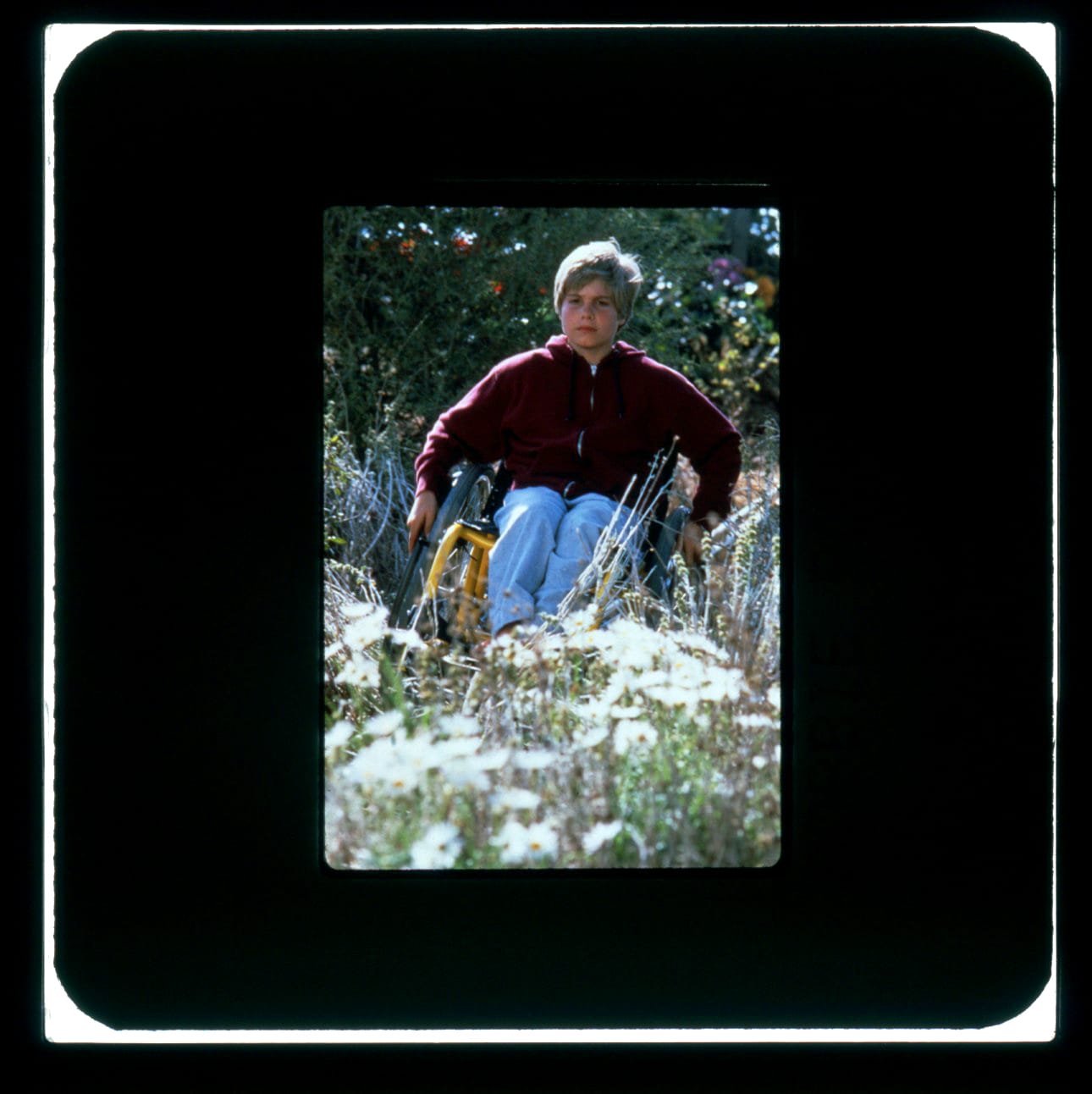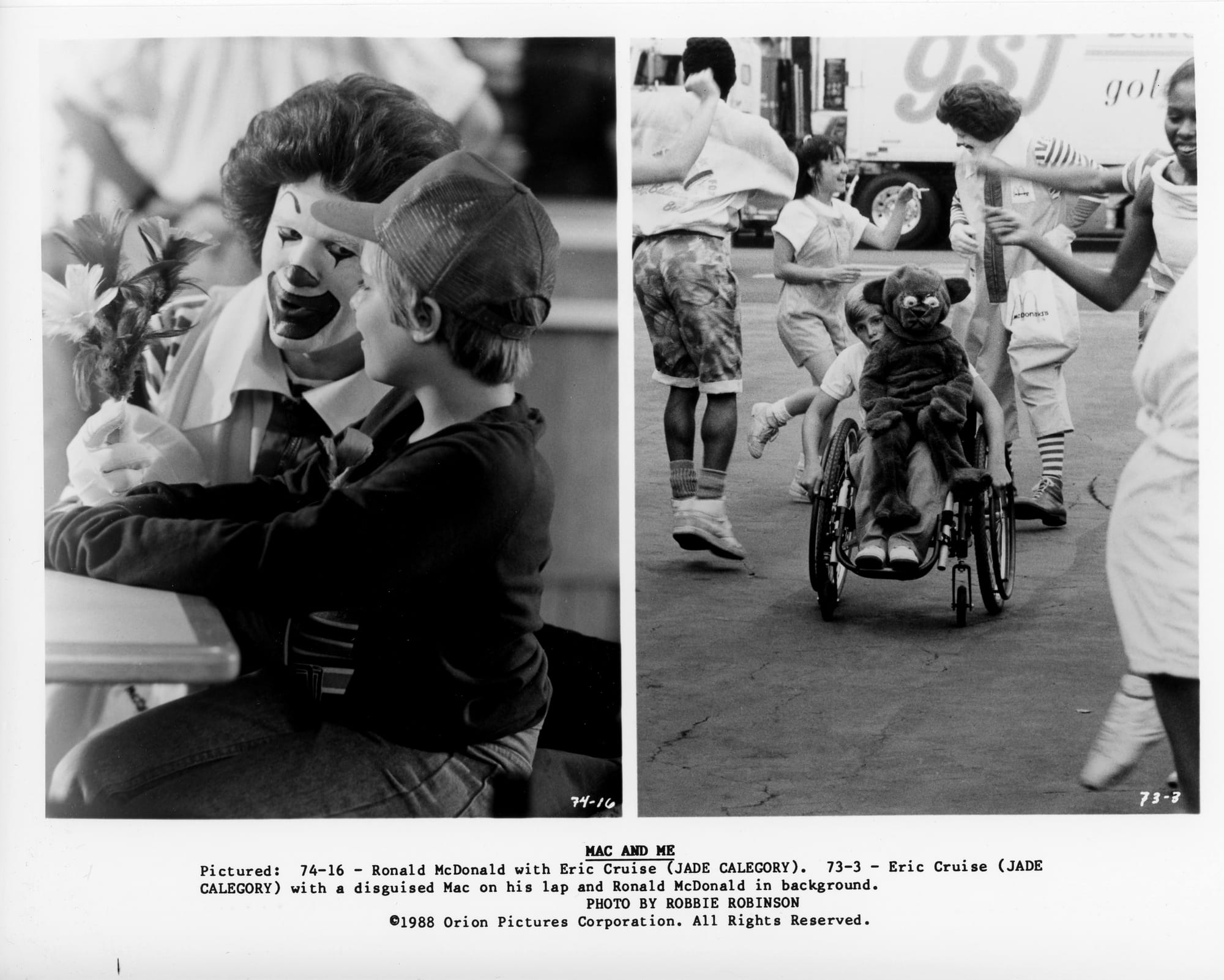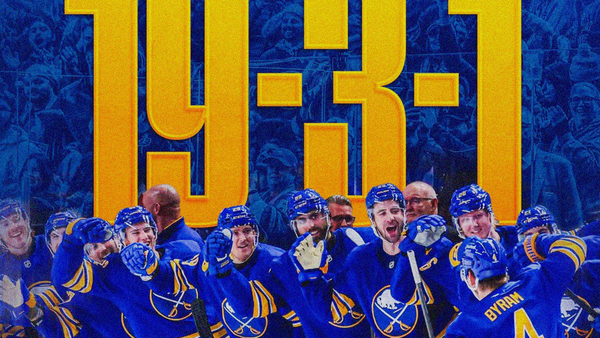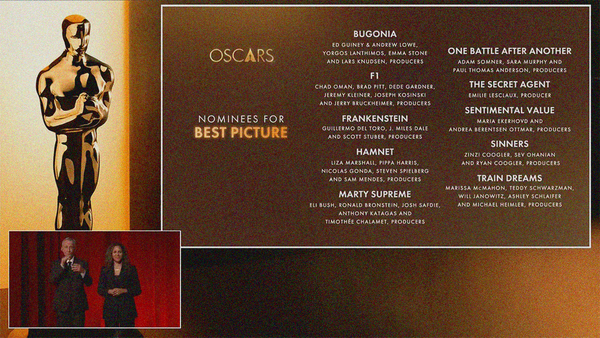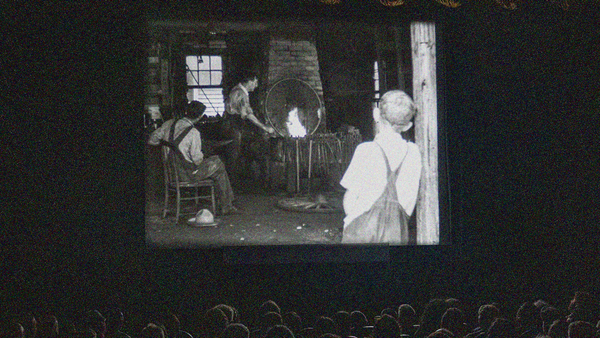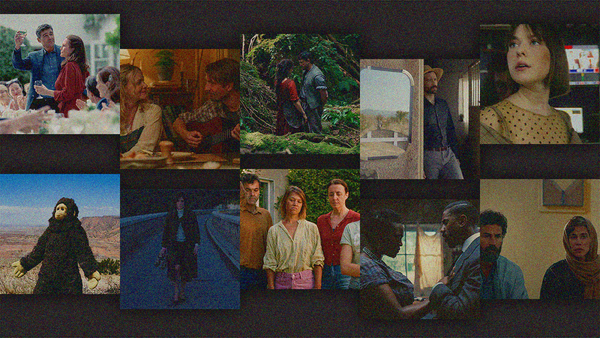Week Ending 10/31/25
Cinemayaat magazine's AFMI100
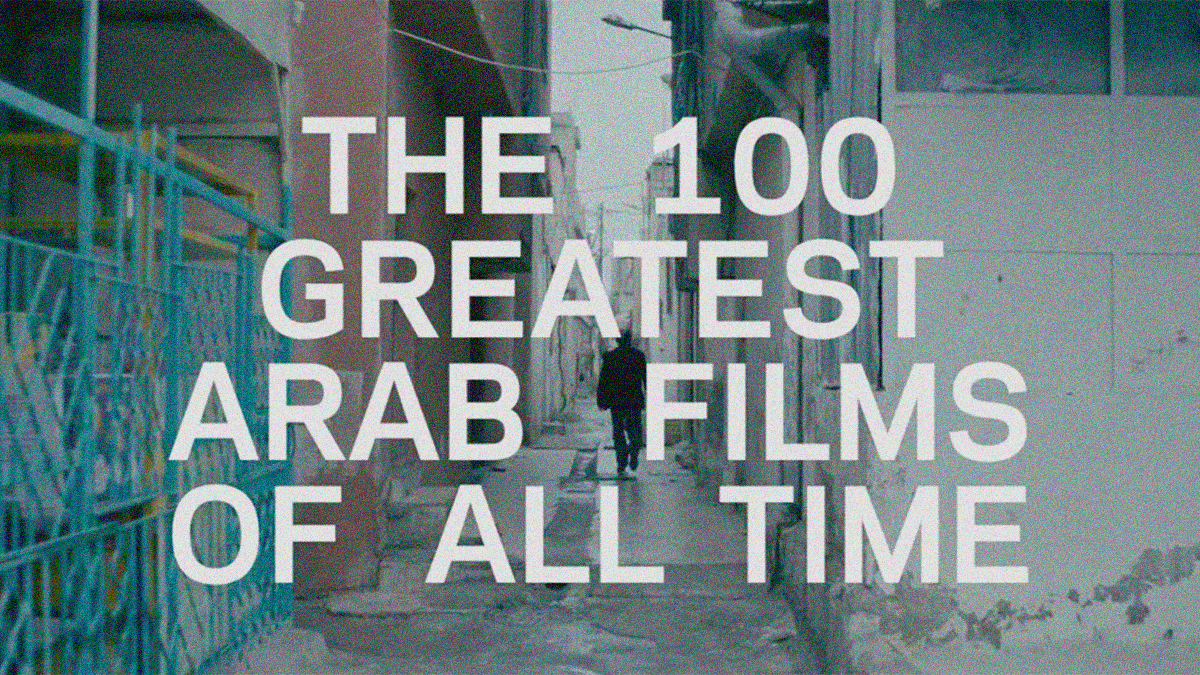
It was almost a full year ago (December 10th, 2024) when I received an email from Cinemayaat magazine's Editor-in-Chief at the Arab Film and Media Institute, Eman Ibrahim. Her pitch was to submit ten films from "the Arab world, the Arab diaspora, and/or depicting Arab narratives" with a loose criteria spanning "personal favorites, essential or milestone works, underrated gems, or a mix of all three" to help establish "a canon of the best cinema the Arab world has to offer."
I was flattered by the invite, but cautious about my participation considering 95% of the Arab films I've seen have all been released post-2000. Ibrahim explained this was intentional as they were looking for as much insight from all facets of the industry to ensure nothing was missed. Ballots were sent to experts on individual Arab countries, those versed in historical cinema, and, like me, those who've stayed current with contemporary output.
Well, the full list is now complete and ready to be revealed in a weekly countdown format upon the closing of the 2025 Arab Film Festival. Titles 100-11 will each be accompanied by a short blurb (I was honored to write one for an entry off my ballot) and the Top Ten will each release with a feature essay by one of their respective voters.
The schedule is as follows:
• November 18th: films ranked 100-81
• November 25th: films ranked 80-61
• December 2nd: films ranked 60-41
• December 9th: films ranked 40-21
• December 16th films ranked 20-11
• December 18th: unveil the top 10
Each section of the list will be revealed on the Arab Film and Media Institute's socials as well as their newsletter (so sign-up today).
Here is the teaser trailer:
"Based on the votes of hundreds of professional critics, academics, curators, and select filmmakers, the 100 Greatest Arab Films of All Time list (also known as AFMI100) presents a modern canon of the 100 best narrative feature films to ever come out of the Arab world."
I can't wait to finally see it myself so I can compile a watchlist (if they don't make one on their letterboxd) and start watching every blind spot.

Anniversary
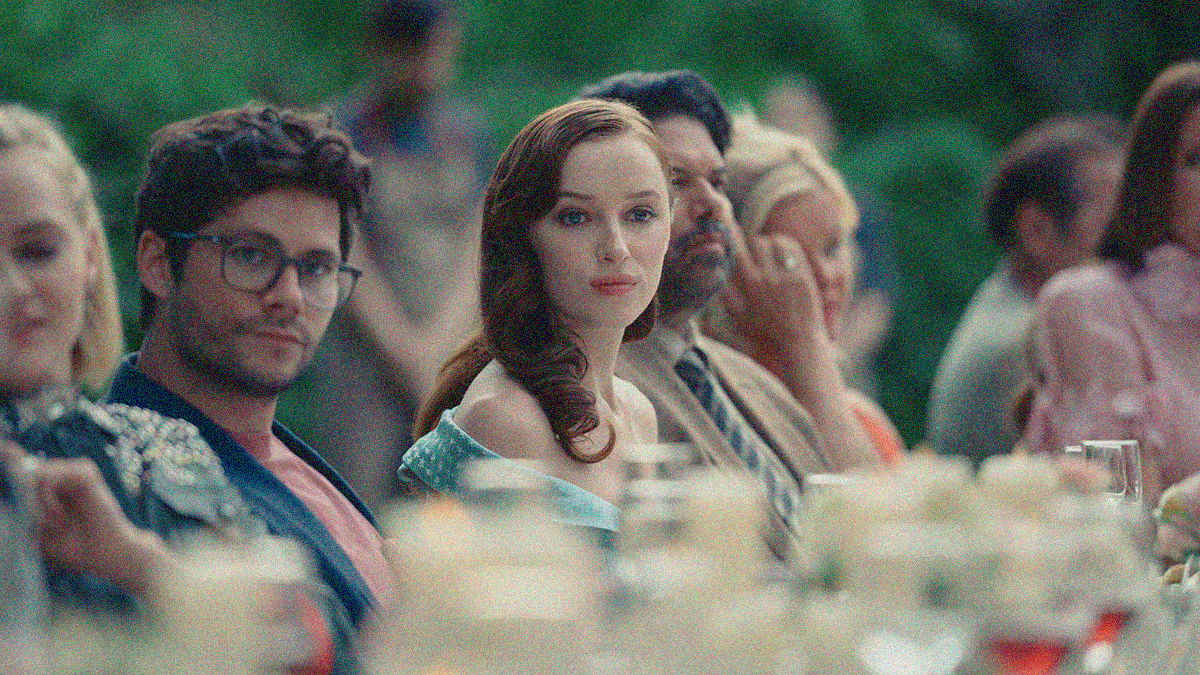
I think we've all learned this past year (if not prior) that liberalism is a disease propping up flawed and entitled figures who are too quick to throw its ideals aside. Because "equality before the law" only works when the laws are fair. It's why fascism and communism both ultimately lead towards autocracy. Whomever gains control will always seek to sustain it. Their "individual liberty" will always be more important than everyone else's and therefore drive them to persecute all who dare to achieve what they have. Equality inevitably breeds fear.
Why? Because to be equal is to accept the person to your side has as much right to your position as you do. We're too selfish a species for that. So, we create myths like the "American Dream" to dangle as bait while working behind the scenes to ensure the possibility of achieving it remains out of grasp. Social services meant to bridge the gap are therefore seen as "unfair" by those who don't need them presently rather than a necessity for the potential future where they might. It's why the pendulum forever swings without any real change.
Enter director Jan Komasa and screenwriter Lori Rosene-Gambino's Anniversary. Rather than attempt to find an answer to the unanswerable problem of the American experiment—a miracle in its progressiveness and a curse by having been created in a time of civil injustice (just enough equality to seem perfect so opportunists can point to its perfection as a means to discriminate in its name)—they seek to expose it. And what better way to do so than turning today's one-party structure on its head while revealing the song remains the same?
Because that lack of change is a result of a corrupt system wherein republicans and democrats both just want control. Elected officials are no longer public servants for the people. They are puppets for the corporate interests lining their pockets. They both siphon off just enough money to sustain votes despite doing so in different ways (democrats through those social services that make the well-to-do angry and republicans through tax breaks that make the poor angry). So, they all pontificate and laugh while we find ourselves without a viable alternative.
Until Liz Nettles (Phoebe Dynevor) creates one, of course. From a provocative thesis calling for the abolition of all political parties as a means to give power back to the people to a nationwide bestselling book entitled The Change, her superficially apolitical rhetoric sweeps through the country just as extremely political movements like MAGA do. Because people like to hear that they are in control even if it comes from the people who will actually be in control. Ellen Taylor (Diane Lane) recognizes the danger and calls it out.
Because it's another ruse. Whether the fallacy of having two parties with almost identical agendas or that of no parties as though the concept isn't just a third arm coming in to cut off the other two, Ellen sees where it leads—especially in our current world of convenience, misinformation, and destruction of debate via partisan hacks adhering to an agenda with zero interest in pretending they can be persuaded otherwise. It's why she called Liz out through her role as professor and why she does it again through her role as mother to Liz's new boyfriend.
But Anniversary is about more than one adversarial relationship. It simply wields that dynamic as the entry point into a family with just enough money to say dumb things like "we aren't liberal or conservative" and just enough education to think reason and truth still matters. Because the Taylors aren't saviors or destroyers. They're merely comfortable citizens straddling a line for which they never needed to wonder about its height off the ground. Not until Liz tapped into Josh's (Dylan O'Brien) insecurities and radicalized the others against her.
Told over a span of five years, the film starts by showing us the freedoms the Taylors enjoyed as a tenured professor at Georgetown (Ellen) and respected chef (Kyle Chandler's Paul) with an out-spoken lesbian comedian (Madeline Brewer's Anna), environmental lawyer (Zoey Deutch's Cynthia and her husband, Daryl McCormack's Rob), aspiring writer (Josh), and teenage scientific wunderkind (Mckenna Grace's Birdie) as children. And, as The Change grips the nation, how they handle losing that once impenetrable illusion of control.
While I don't deny Rosene-Gambino's script is heavy-handed in the mirror it holds up to today's political chaos and its tidy visual (René Magritte's The Lovers) and narrative threads, I implore you not to deny the emotional impact born from the execution of those machinations. The time skips expertly foster the space for some truly powerful character and relationship metamorphoses. How does Josh change at Liz's side? How do familial bonds shift via widespread indoctrination? When does "open mindedness" become censorship?
And through those evolutions we receive what is probably the best ensemble of performances this year with a wealth of impassioned acts of courage and crucial examples of ambiguity when motivation and reality diverge. Because a lot of Anniversary exists in a duality of interpretation. Has Liz started dating Josh to get revenge on her old professor or did she fall in love first with that connection being exposed as a coincidence? Does Liz write The Change with an idyllic hope for unity that spirals or was it always about taking America's reins?
It's in this gray that the best moments arise because preconceptions on behalf of the characters have the potential of pushing those they're trying to save right over the cliff. The brilliance of the film doesn't therefore lie in its "us versus them" propulsion, but in the nuance of believing love and blood still mean something in an era of hate. Not only that, but there's also the reality that fear itself comes from myriad places. Ellen and Paul fear for their souls and those of their kids. Is Liz's eventual fear of Josh about the same thing? Or is it about losing her place?
The final shot will answer this question, but the more important one should be you asking yourself what you'd do under similar circumstances. Not as a hypothetical, but as preparation. Because all signs point to the fact we currently reside within the second chapter labeled "two years" after the initial anniversary party. What happens in the mid-term elections and the next presidential election (if there is one) will dictate whether we move into chapter three and four with their "loyalty oath" census. I hope I'd take the knife too.
It's why I'm not going to shake Anniversary anytime soon. Not the spite within O'Brien's performance or the determination from Chandler. Not Lane's righteousness or Dynevor's naïveté. There are so many unforgettable exchanges that tap into today's psychology and the ways we've leveraged our relationships to serve ourselves. Or the ways we've manipulated our own reality to pretend the mental gymnastics of our actions have bolstered our safety when they've truly just left us exposed to the harm of their consequences.
9/10
Dracula
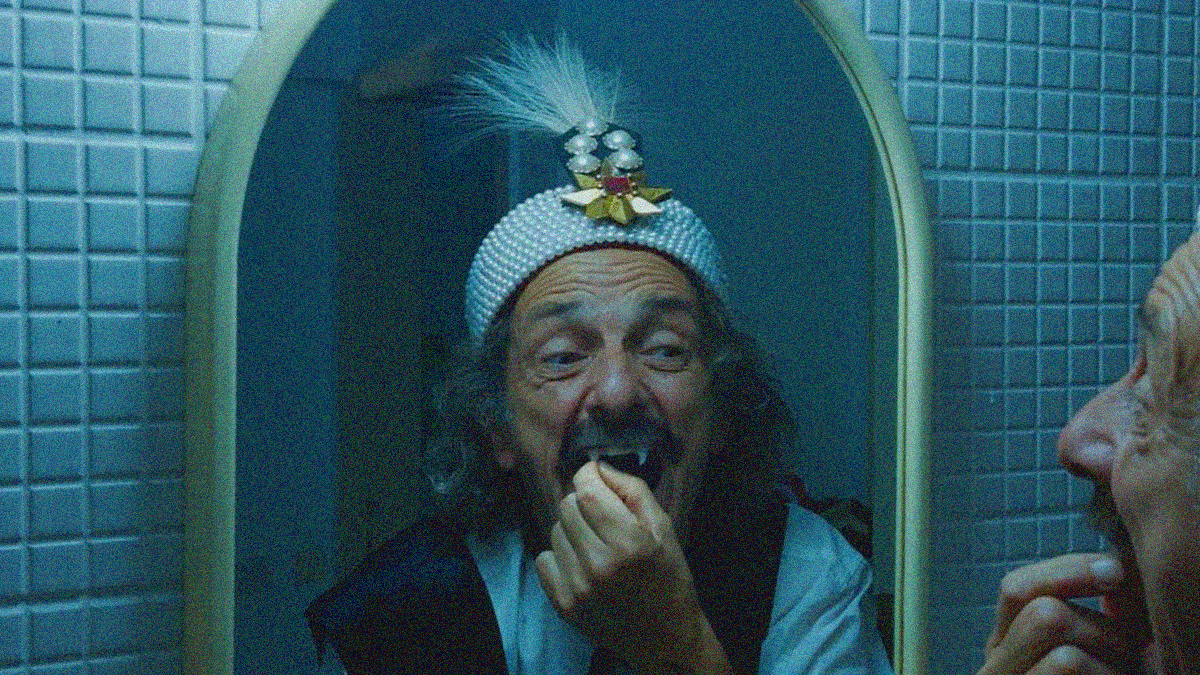
It started with a lie when no one seemed interested in the film he did make: "Well, actually, I have a Dracula film." Of course, a pitch that generic would perk up festival buyers' ears and threaten to open wallets. Timeless IP sells. Weird Romanian films prone to multiple five-minute-long historical and political context dumps do not ... well, not as much considering Radu Jude has no trouble finding international distributors for his work. So, he took the lie's interest and made another weird Romanian film out of it.
Centered upon a fledging director (Adonis Tanta) who has decided to turn to AI to fulfill his obligations to producers, Dracula unfolds as an anthology piece built atop an outlandish tale of a secret dinner club where you can bid on having sex with the stars (Gabriel Spahiu's former mental patient and Oana Maria Zaharia's OnlyFans goth) and then bring your children along to hunt them through the streets with giant wooden stakes. This duo's attempt to escape the low pay and disrespect is the "big idea," but Tanta knows attention spans always wane.
In great absurd fashion, he decides to expand an hour of story into three hours of content courtesy of faux generative AI pitches to keep audiences glued to the screen. So, each time something is about to happen to Spahiu and Zaharia, Tanta cuts back to his sparse bedroom to feed another prompt into his tablet. A love story that has nothing to do with Dracula but ends with an impalement. An adaptation of Romania's first literary Dracula myth. A capitalist metaphor where Dracula (Alexandru Dabija) is Blake from Glengarry Glen Ross.
While Jude writes the whole film, he does augment the "AI" portions with actual AI imagery that proves as good a reason as any to bury the phenomenon six feet deep. It's like he ended each ask with, "but make it as dumb as possible," so the technology's inherent problems remain in full bloom. Yes, he's experimenting with cinema as a medium, but these moments also generally stand-in for big action sequences to show he's doing whatever possible to stay under budget. Financing was admittedly in constant flux.
In that vein, Jude was also forced to be creative in the live-action portions of the film. That main narrative with Spahiu and Zaharia is constantly switching camera quality. The longest chapter of the whole at around fifty minutes (according to the AI's warning when agreeing to bring that Dracula adaptation to life) is staged like a regional theater production complete with cardboard cutouts as extras. And most of the cast is tasked with playing numerous roles throughout—a fact that actually leans into generative AI being a recycling tool.
You must therefore applaud the ingenuity regardless of whether you enjoy the finished product. I found myself nodding off more than once as the whiplash of moving from one vignette to next had me looking at my watch instead of forcing engagement. All the Jude hallmarks are here, but it proved too meandering and gimmicky for full investment—especially with that fifty-minute sequence dragging simply because my brain had already been trained on ADHD-levels of pornographic content swipes. (But I did love those Nosferatu ad placements.)
It's a case of the parts being more worthwhile than the whole. A film that may have benefited from being released on TikTok as a series of increasingly strange mini movies like the final tale of a street sweeper (despite him actually being a garbage man). Because I do appreciate the idea of dissecting vampire lore and stitching it together like Frankenstein's monster. I just don't think this was the vehicle or format to do so. Jude diehards will surely love it, though. Cinephiles craving subversive chaos will too. The rest of you should temper expectations.
5/10
A House of Dynamite
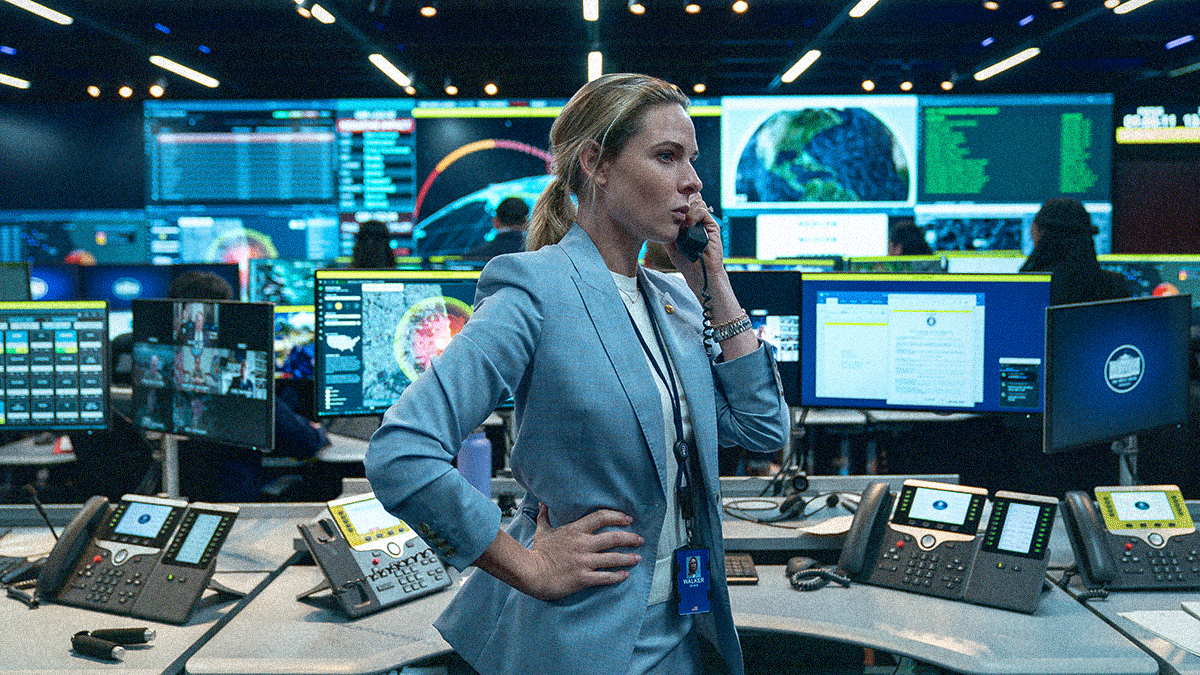
In the immortal words of Dennis Hopper in Speed to the co-star of Kathryn Bigelow’s hit film Point Break, Keanu Reeves: “Pop quiz hotshot. A nuke has been launched from the Pacific Ocean and will hit Chicago in nineteen minutes unless your hope-and-a-prayer defensive ballistics stop it first. You can keep a level head and figure out who’s responsible or launch an attack on all your enemies’ nuclear stockpiles right now, triggering global suicide. What do you do? What do you do?!”
A great cast performing within the logical and presumably authentic parameters of an impossible situation. Bigelow executes it to perfection via a triptych of vantage points all cutting to black at the same moment (those tasked to intercept, those tasked to ready a response, and the president’s journey towards making his decision).
What do they do? What would any of us do? I wish it was a question we’d never need to answer, but the temperature feels like we will sooner or later. So, the choice to leave it all to our interpretation only makes the futility that much more palpable. It’s a great tool for suspense and, perhaps, a cop-out, but I do believe it’s the best narrative route for full existential potency.
8/10
Little Amélie or the Character of Rain
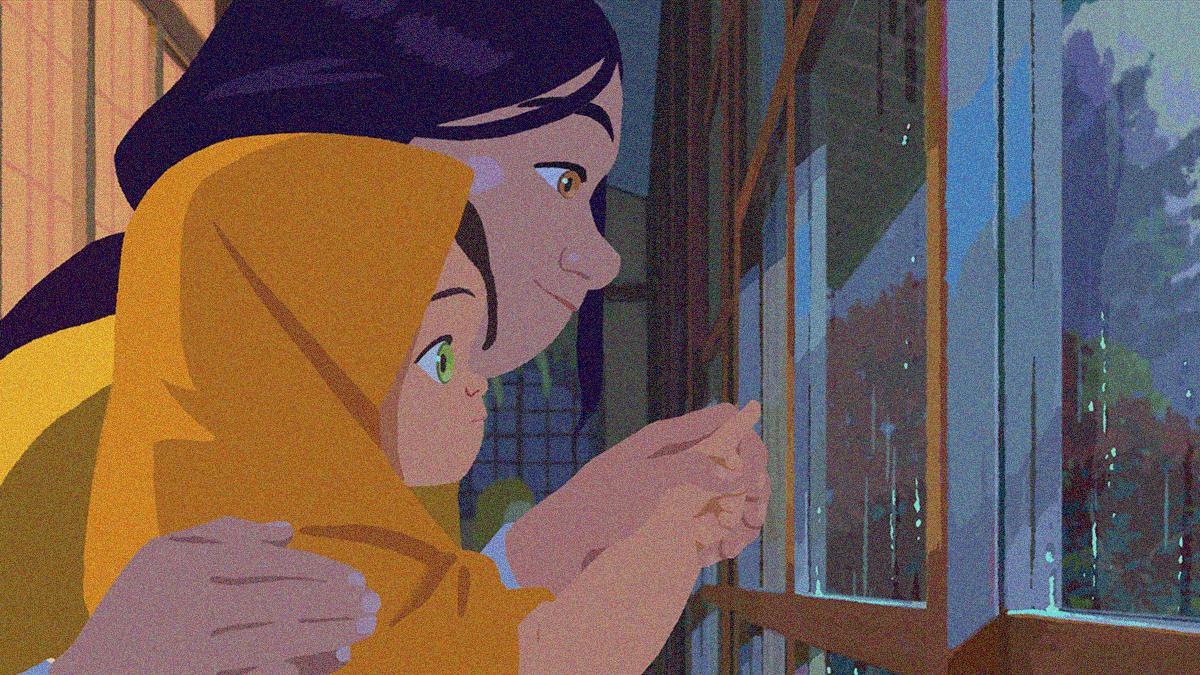
A Belgian born in Japan, Amélie (Loïse Charpentier) was thought to be trapped inside her own body. Her parents (Marc Arnaud's Patrick and Laetitia Coryn's Danièle) made certain she was still around them and her siblings (Haylee Issembourg's Juliette and Isaac Schoumsky's André), but it's not until an earthquake at age two-and-a-half that she finally shows signs of life. Little did they know, however, Amélie had been watching and learning the whole time. So much so that she becomes enraged upon discovering she cannot speak yet.
Based on Amélie Nothomb's (the pen name for Baroness Fabienne Claire Nothomb) autobiographical novel, Little Amélie or the Character of Rain is about the collision of cultures that occurs upon this awakening. While it's a Japanese earthquake that stirs Amélie to break free from her prison, it's a piece of Belgian white chocolate (courtesy of her grandmother, Cathy Cerda's Claude) that gives her the clarity to turn her incessant bawling into fully formed sentences. The only thing that doesn't change is the belief she's God.
Directors Maïlys Vallade and Liane-Cho Han Jin Kuang (who both co-adapt with Aude Py and Eddine Noël) show this fantastical notion via a series of moments that defy logic and reality. We are obviously meant to know they occur only within the child's imagination, but it's fun to take them at face value as Amélie finds her way through the only world she's ever known as a foreigner. Because Claude was the only one who treated her as more than a baby before returning to Belgium. And it's only Nishio-San (Victoria Grobois) who does so after.
Hired by the family's landlord (Yumi Fujimori's Kashima-San), Nishio-San serves as housekeeper once Amélie's diplomat father and musician mother reckon with what it means for their youngest to no longer just be a quiet, motionless figure in the background. She recognizes the "godliness" of the child (how Japanese culture sees babies before their third birthday evolves them into human beings) and treats her with respect insofar as her questions, curiosity, and emotions are concerned. Nishio-San promises to be Amélie's Komainu guardian.
Narrated by this wise-beyond-her-years toddler, we find ourselves inside Amélie's head as she learns about life through the blossoms of spring, death from a relative's tragic passing, and history once we gradually start to understand the contempt Kashima-San holds for her European tenants. We see the magic of her gaze when looking upon hungry carp as empty-headed boys desperate for a meal. We see it when visiting the beach and deciding to part the waves to see the creatures beneath. And when her temper conjures new storms.
Because whether she's a God or a tempestuous baby, Amélie is in full control. Those around her become slaves to her whims being that she's too young to fully grasp situations that make her feel too much. So, her every interest is satisfied. Her boredom always fought against by a new activity thanks to Nishio-San's willingness to embrace her as a friend and equal worthy of learning her nation's customs rather than a stranger bearing too strong a resemblance to the enemies that killed her family during the war.
The filmmakers follow suit by never talking down to their audience—regardless of what many "family films" have become the past few decades. They allow moments to be scary (like the entrance of a Komainu lion) so they can be diffused with laughter. Others are allowed to be heavy with emotions (like the obvious sorrow Amélie feels despite not quite comprehending why) so the love of someone willing to explain can add context and provide the space to work through the pain instead of simply pretending it can be swept away.
This lesson is the one that allows the message of memory to shine through. Not just about its ability to hold onto the joyous moments of our lives, but also to remember the horrors in order to grow even as their darkness begs for you to get lost inside them instead. Because it's one thing for Kashima-San to see the people who killed her husband and son in the faces of Amélie's family, but it's another to recognize the difference. To know that no one should be punished for something they weren't old enough (or even alive) to do.
The weather within The Character of Rain is therefore more about its cleansing properties than destructive nature. Amélie's name means "rain" in Japanese ("character" being its written symbol) and she loves to stand in it to become one with the water—a common theme for her rebirth and awakenings. The film's animation style suits this truth too with its impressionistic color fields creating dimensionality rather than relying upon outlines. It lets the real and surreal overlap so the drama is always filtered through this child's eyes.
8/10
Sunfish (& Other Stories on Green Lake)
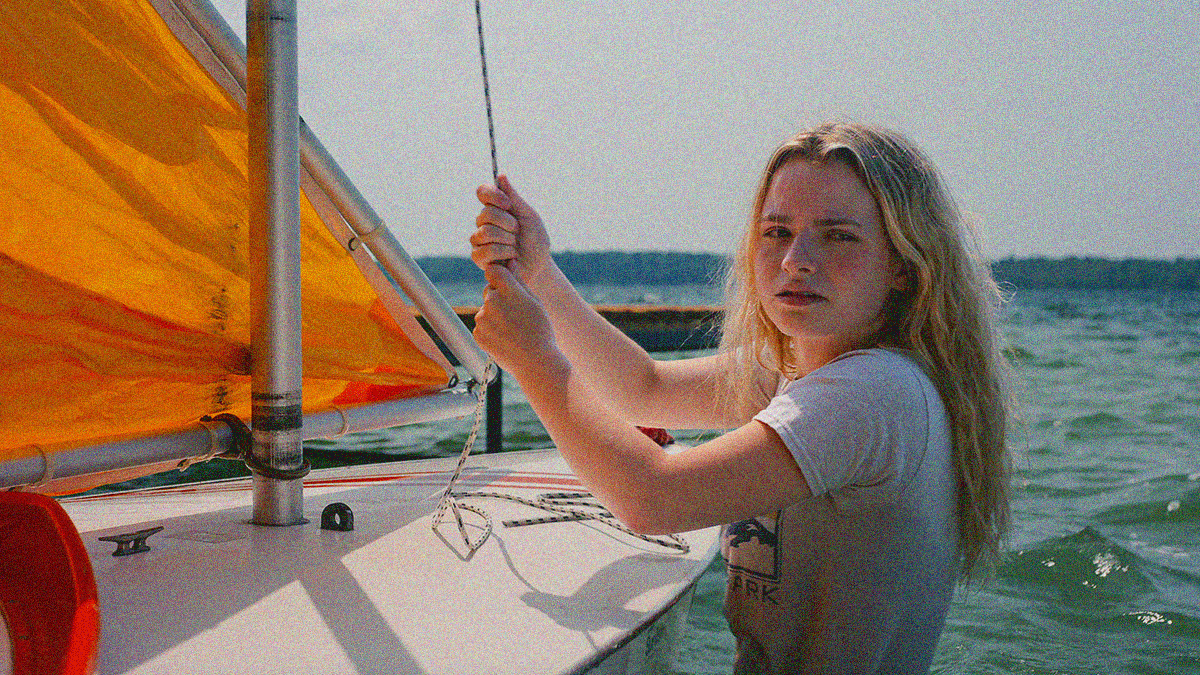
What does a fourteen-year-old getting stuck with her grandparents on zero notice, a violin savant buckling under the impossible pressure of his domineering mother, a terminally ill fisherman and an exiled-from-the-world bartender seeking any thrill to change her life, and a pair of sisters reconciling with the one's impending departure have in common? They've all serendipitously found themselves spending a portion of their summer on the water of Michigan's Green Lake Township.
Writer/director Sierra Falconer's Sunfish (& Other Stories on Green Lake) unfolds as a quartet of vignettes tenuously connected to present a love letter to the wonders and possibilities of life. It's joy and love born from tragedy and chaos. It's finding the freedom of identity through what sometimes feels like the oppressive nature of circumstances outside your control. Because each one of these characters could simply accept the despair clawing its way into their thoughts. Or they can embrace the unbridled potential of the unknown.
Lu (Maren Heary) is first up as she's unceremoniously dropped off at her grandparents' (Marceline Hugot's Nan and Adam LeFevre's Pop) house by her just-married-with-no-warning mother. The teen sees it as a punishment. Abandonment. She doesn't want to even consider making the best of a terrible situation because all she really wants is to go back home with Mom. But, with the help of a baby loon, she discovers sailing and birding and the comfort of quiet living. She's been tossed from the nest, but now she's beginning to soar.
We meet Jun (Jim Kaplan) next as his mother demands he speaks a wish aloud as though reification is an infallible science. We therefore see firsthand that his obvious anxiety about auditioning for first chair violin at this expensive and exclusive music camp is mostly his mom's fault. Her undue pressure has him practicing so hard that he never interacts with the other musicians. And every missed note sends the end of his bow into the top of his foot until it draws blood. Will earning the role even be worth it? Only if it's for him and not her.
Part Three is both the most fun and most unrealistic of the collection. So, while you may find the excitement (and its convenient motivations) a bit jarring compared to its more down-to-earth companions, Annie (Karsen Liotta) and Finn (Dominic Bogart) imbue this fated adventure with too much energy to not get swept up in its fantastical stakes. Will the cantankerous Chip (Wayne Duvall) ruin their hunt for a giant fish of legend? Will Annie see it with her own eyes to corroborate Finn's tall tales? Will the latter achieve his legacy?
And, just as Lu's arrival brings us into Green Lake, it's Robin's (Emily Hall) departure that sends us off with a wave to sister Blue Jay (Tenley Kellogg). The two run a bed and breakfast with their father and the hope is that a new Hollywood family might distract Blue from the sorrow of watching big sis leave for culinary school. In the meantime, however, they're going to make the most out of the trampoline and kitchen while silently mocking their eclectic tenants. They'll get on each other's nerves, laugh until it hurts, and weep from longing.
Each little story holds a sweet yet authentic look at the breadth of emotions the human condition bestows upon us all. The scenery is gorgeous, the players three-dimensional in their yearning, and the overall vibe a heartfelt shot of nostalgia for sleepy summers, new friends, and indelible experiences possessed with the power to alter the very fabric of your soul. Its locale is specific, but its themes—pleasures and stresses alike—are universal. We should all aspire to reclaim the sense of exhilaration that comes with not knowing what comes next.
8/10
The Wolf Man
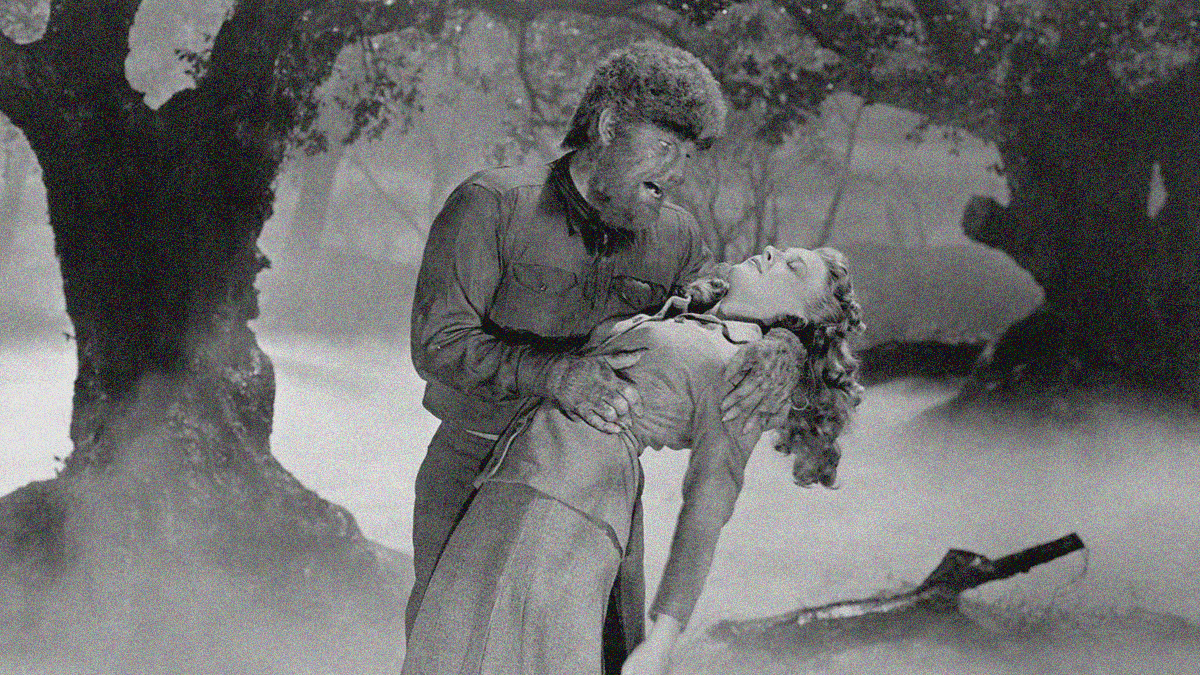
Having the portrait of Larry’s late older brother just be a portrait of Lon Chaney is quite the choice. Sir John goes on and on about the Talbot family residing here for generations and yet no one recognizes his son upon returning after eighteen years despite him being the spitting image of the son they all knew?
The script does a great job instilling the idea that a werewolf is merely the delusion of an unstable soul trying to give form to its sudden, uncontrollable violence. This potential explanation is rendered naive considering the film shows the audience werewolves are real with the first murder, but I like the attempt at metaphorical duality anyway.
Good performances. Quickly paced with a barebones plot harboring zero excess. And a quality tragic ending wherein the evidence will still prove insufficient in making people believe the impossible is possible.
7/10
Wolf Man
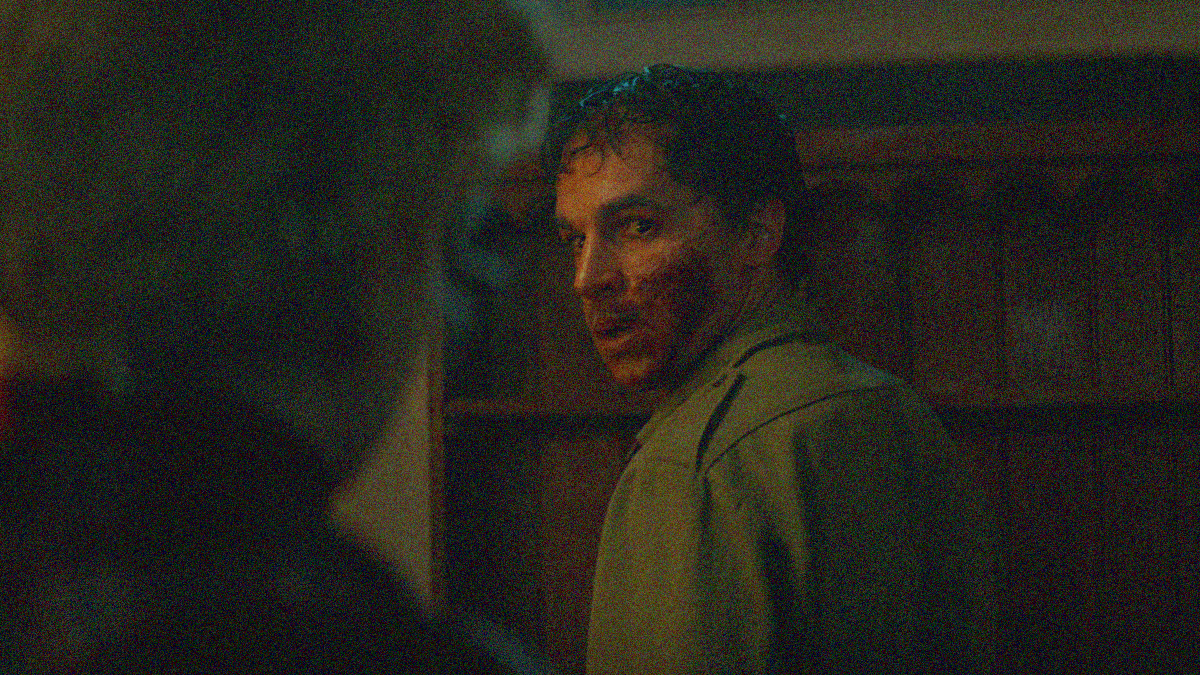
A military veteran obviously suffering from PTSD cannot shield his violent temper from his son, so his attempts to protect the child on their farm inevitably become what scares him most. The boy leaves as soon as he comes of age to later marry a woman in the city who chooses to bury herself in work so as not to risk discovering she's an inadequate wife and mother. This avoidance is precisely what ensures that inadequacy.
After what Leigh Whannell did with The Invisible Man, I was excited to see him also drag Wolf Man into the twentieth century and that above narrative conceit seemed primed for similar success. Unfortunately, he and co-writer Corbett Tuck never really build upon this mirroring to deliver anything more than a guilt trip for Charlotte to agree to accompany Blake back home to Oregon.
The result leads to a pretty one-dimensional, single-night creature feature that leans into an intriguing dual perspective wherein Blake's transition from man to beast is shown as contrasting sensory experiences between himself and those perceiving him. While a nice bit of aesthetic flair, it's just as superficial as the parenthood theme and indigenous appropriation of ma'iingan odengwaan. The film is solid enough midnight fare, but only if you're not expecting more.
And kudos to Ginger for telling her parents that she'll never fight in front of her own kids ... while they are in fact fighting in front of her.
6/10

This week saw Antitrust (2001), Battleship (2012), and The Rite (2011) added to the archive (cinematicfbombs.com).
Ryan Phillippe dropping an f-bomb in ANTITRUST.

Opening Buffalo-area theaters 10/31/25 -
• Anniversary at Dipson Capitol; Regal Transit, Galleria, Quaker
Thoughts are above.
• Baahubali: The Epic at Regal Elmwood, Transit, Galleria
• Back to the Future: 40th Anniversary at Dipson Flix, Capitol; AMC Market Arcade; Regal Transit, Galleria, Quaker
• Bugonia at AMC Maple Ridge, Market Arcade; Regal Elmwood, Transit, Galleria, Quaker
• G-Dragon In Cinema [Ubermensch] at Regal Transit, Galleria
• Ikk Kudi at Regal Elmwood
• KPop Demon Hunters A Sing-Along Event (weekend only) at AMC Maple Ridge, Market Arcade; Regal Elmwood, Transit, Galleria, Quaker
• Madhaniyan at Regal Elmwood
• ParaNorman (Remastered) at Regal Elmwood, Galleria
My thoughts from its 2012 release at jaredmobarak.com.
• Self-Help at Regal Transit
"It all adds up to an invigorating ride that supplies everything necessary for horror fans to latch onto at the surface and a captivating human story of imperfect souls doing their best to, ultimately, accept themselves underneath." – Full thoughts at jaredmobarak.com.
• Spike and Mike’s Animation Extravaganza 2025 (weekend only) at Regal Elmwood, Transit, Galleria, Quaker
• Stitch Head at Dipson Flix, Capitol; Regal Elmwood, Transit, Quaker
• The Taj Story at Regal Elmwood
• Violent Ends at Regal Transit, Quaker
Streaming from 10/31/25 -
• The White House Effect (Netflix) - 10/31
• Sew Torn (Shudder) - 11/1
• The Cut (Paramount+) - 11/1
"I’ve been a fan of Ellis for twenty years, but his attempts to infuse this men’s rights movement slog of a scree with energy via some nice visual flourishes isn’t enough. It’s just meathead, anti-mental health aggression." – Full thoughts at HHYS.
• The History of Sound (MUBI) - 11/1
• The Unbreakable Boy (Starz) - 11/1
• I Am Curious Johnny (HBO Max) - 11/3
• In Waves and War (Netflix) - 11/3
• Love+War (Disney+) - 11/4
• Finding Joy (Prime) - 11/5
• The Fantastic Four: First Steps (Disney+) - 11/5
Now on VOD/Digital HD -
• Big Deal (10/28)
• Eleanor the Great (10/28)
"Because while this is a funny movie thanks to Squibb's excellent comedic timing and zingers, it never mocks the severity of its subject matter. Death and tragedy remain sacred." – Full thoughts at HHYS.
• The French Italian (10/28)
• He Ain't Heavy (10/28)
• Molière's Last Stage (10/28)
• Mumu (10/28)
• Xeno (10/28)
• Indera (10/31)
• Messy (10/31)
• Safe House (10/31)

Pieces from the Mac and Me (1988) press kit.
